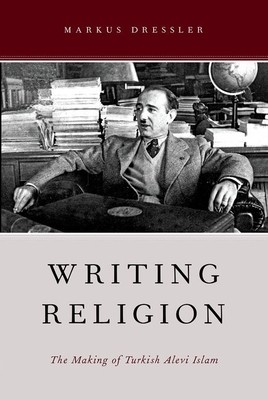
- We will send in 10–14 business days.
- Author: Markus Dreßler
- Publisher: Oxford University Press, USA
- ISBN-10: 0190234091
- ISBN-13: 9780190234096
- Format: 15.5 x 23.1 x 2.3 cm, softcover
- Language: English
- SAVE -10% with code: EXTRA
Reviews
Description
In the late 1980s, the Alevis, at that time thought to be largely assimilated into the secular Turkish mainstream, began to assert their difference as they never had before. The question of Alevism's origins and its relation to Islam and to Turkish culture became a highly contested issue. According to the dominant understanding, Alevism is part of the Islamic tradition, although located on its margins. It is further assumed that Alevism is intrinsically related to Anatolian and Turkish culture, carrying an ancient Turkish heritage, leading back into pre-Islamic Central Asian Turkish pasts.
Dressler argues that this knowledge about the Alevis-their demarcation as "heterodox" but Muslim and their status as carriers of Turkish culture-is in fact of rather recent origins. It was formulated within the complex historical dynamics of the late Ottoman Empire and the first years of the Turkish Republic in the context of Turkish nation-building and its goal of ethno-religious homogeneity.EXTRA 10 % discount with code: EXTRA
The promotion ends in 16d.17:12:42
The discount code is valid when purchasing from 10 €. Discounts do not stack.
- Author: Markus Dreßler
- Publisher: Oxford University Press, USA
- ISBN-10: 0190234091
- ISBN-13: 9780190234096
- Format: 15.5 x 23.1 x 2.3 cm, softcover
- Language: English English
In the late 1980s, the Alevis, at that time thought to be largely assimilated into the secular Turkish mainstream, began to assert their difference as they never had before. The question of Alevism's origins and its relation to Islam and to Turkish culture became a highly contested issue. According to the dominant understanding, Alevism is part of the Islamic tradition, although located on its margins. It is further assumed that Alevism is intrinsically related to Anatolian and Turkish culture, carrying an ancient Turkish heritage, leading back into pre-Islamic Central Asian Turkish pasts.
Dressler argues that this knowledge about the Alevis-their demarcation as "heterodox" but Muslim and their status as carriers of Turkish culture-is in fact of rather recent origins. It was formulated within the complex historical dynamics of the late Ottoman Empire and the first years of the Turkish Republic in the context of Turkish nation-building and its goal of ethno-religious homogeneity.

Reviews